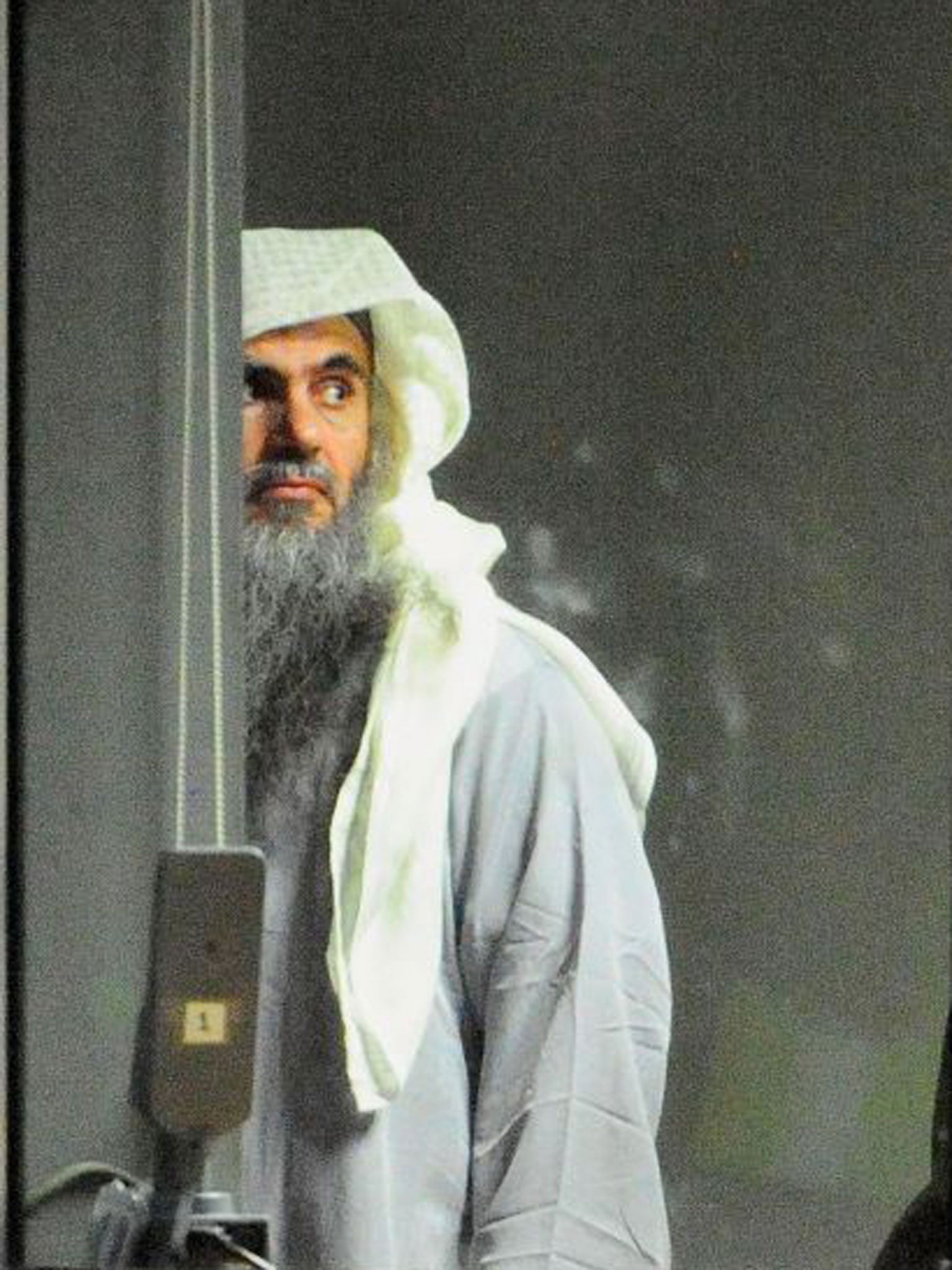'He is a good man': Abu Qatada’s friends in Jordan say he should be sent home, not to jail

Your support helps us to tell the story
From reproductive rights to climate change to Big Tech, The Independent is on the ground when the story is developing. Whether it's investigating the financials of Elon Musk's pro-Trump PAC or producing our latest documentary, 'The A Word', which shines a light on the American women fighting for reproductive rights, we know how important it is to parse out the facts from the messaging.
At such a critical moment in US history, we need reporters on the ground. Your donation allows us to keep sending journalists to speak to both sides of the story.
The Independent is trusted by Americans across the entire political spectrum. And unlike many other quality news outlets, we choose not to lock Americans out of our reporting and analysis with paywalls. We believe quality journalism should be available to everyone, paid for by those who can afford it.
Your support makes all the difference."My son is innocent and I hope the court will set him free," said Abu Qatada's 86-year old father, standing outside the State Security Courthouse in the outskirts of Amman, where the firebrand preacher appeared on Sunday, charged with conspiring to carry out terrorist attack in Jordan in 1999 and 2000.
That sentiment was echoed in Qatada’s neighbourhood in Amman. “It’s better that he comes back,” said a sheikh outside the mosque which the cleric, known here as Omar Othman, helped build. His father is a key figure at the mosque and most of his family live in the neighbourhood. “He should not go to jail but come back to his house here, behind the mosque,” interjected a neighbour. “He is a good man” he argued, adding that comparisons with Osama bin Laden were exaggerated.
The decrepit buildings and trash lined streets are a far cry from the £400,000 home the cleric rented with his five children in the UK while on state benefits.
The falafel restaurant owned by Qatada’s brother was open on Sunday. Another family member, who owns a small grocery shop nearby, declined to be interviewed.
“He didn’t participate in any violent act,” said Marwan Shahedeh, a friend and analyst, who said he was “optimistic” about the sheikh being released after his retrial. “Other convicted people were also released by public amnesty from King Abdullah,” he clarified. He said the sheikh was “clever enough” not to be charged with anything else in the future.
Qatada has been transferred to the Muwaqqar high security prison, a state of the art facility with sports fields, music rooms and a library. He will be detained there for 15 days pending trial. If convicted, it is widely believed he would serve his term in the facility as well. The comfortable surroundings are a gesture towards British concerns that the cleric would be mistreated while in Jordan.
However, former inmates speak of another prison in the complex, Muwaqqar 2, which has far harsher conditions.
Britain has appointed a charity, the Adaleh Center for Human Rights, to oversee the proceedings. A representative from Adaleh accompanied him from London and four officers have been assigned to his case.
The repatriation was hailed as a triumph by the Conservative party, which had vowed to expel him from the country. The cost of expelling the cleric to the British taxpayer is £1.7m, as Qatada appealed all the way up to the European Court of Human Rights.
Qatada claimed that extraditing him to Jordan would risk him being jailed using evidence obtained under torture. A treaty adopted by Jordan last week satisfied the concerns of British judges that this would no longer be possible. Abu Qatada had indicated earlier this year that he would be willing to return to Jordan voluntarily for a retrial if that evidence would be excluded.
He will be retried in a military court, but with civilian judges. During an earlier trial he was condemned to death, which was mitigated to lifetime imprisonment with hard labour. As he was convicted in absentia – he was in Britain at the time – he is entitled to a retrial now he has returned to Jordanian soil.
Subscribe to Independent Premium to bookmark this article
Want to bookmark your favourite articles and stories to read or reference later? Start your Independent Premium subscription today.
Join our commenting forum
Join thought-provoking conversations, follow other Independent readers and see their replies
Comments